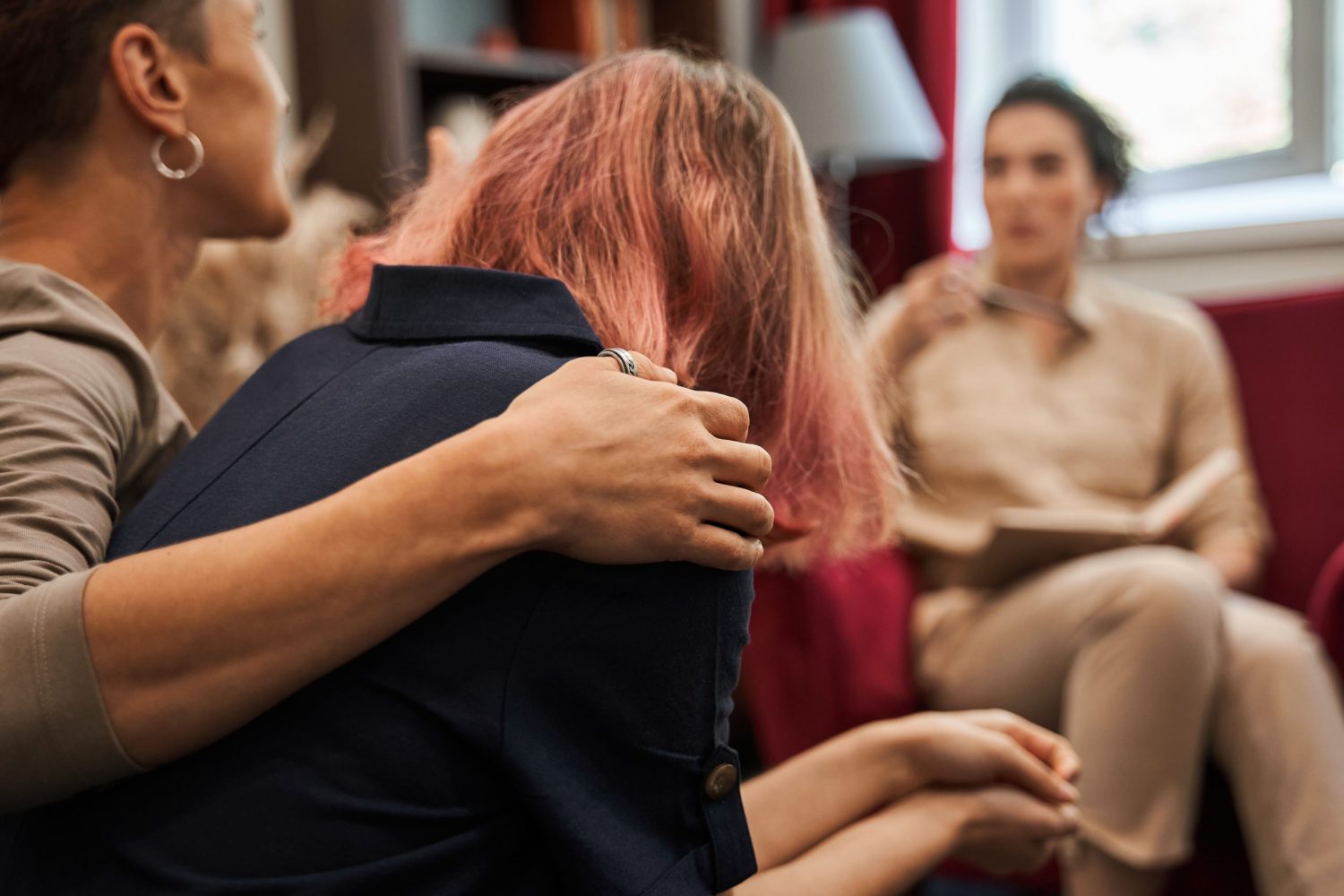Published in partnership with MnFIRE partner, Optum
It’s important to check on your friends and family members who seem OK or even appear physically and emotionally strong, including the firefighters in your life. In many cases, it’s easy to recognize when a friend is going through a tough time — maybe they recently broke up with a longtime partner, lost a job or have been battling a health concern. But in other cases, it’s not so clear when someone we care about needs emotional support.
Recognizing emotional distress
Many people live with situational or chronic depression and anxiety, among other mental health conditions. Most go untreated for a variety of reasons, including not realizing they need help, fearing unfavorable judgement or treatment, or simply seeing help as a sign of weakness. In many cases, there may be signs you can notice, such as:
- Changes in behavior, like withdrawing from or avoiding family and friends or activities they like, sleeping more, being less productive, increased use of alcohol and other substances or decreased sex drive.
- Changes in appearance, such as skipping bathing and grooming, looking tired or sad, noting physical pain, or gaining or losing a lot of weight.
- Changes in mood, like worrying and stressing out more, overreacting to situations, getting agitated, aggressive or angry or feeling sad and hopeless or showing no emotion.
- Changes in communication, such as posting dark or cryptic social media messages, criticizing themselves often, talking about physical pain or not feeling well or talking about hurting themselves.
However, some people who are in emotional pain don’t show any outward signs or symptoms. They may even appear high-achieving, cheerful, carefree and productive. If emotional distress isn’t addressed, an individual’s symptoms could worsen and eventually seriously impact their overall health and well-being, quality of life and life itself. Among other complications, untreated emotional distress can lead to:
- Depression, anxiety disorders and other mental illnesses
- Alcohol and substance use
- Physical health problems, such as weakened immune system and heart disease
- Self-harm and suicide
Feeling connected to others and having a sense of belonging are important ingredients for mental health and well-being. While you can’t make anyone share or fix their situation, showing genuine care and concern can make a difference in the moment and over their long-term recovery. If nothing else, they’ll know you care, which can provide comfort.
Tips for checking in
Commit to doing it: You may feel like you’re prying, overstepping or overreacting, or that your friend would come to you if they needed help. But you’re not, and they might not. All you can do is ask and be ready to show support.
Use a method that suits your friend: For some people, it’s easier to have a meaningful conversation in person, whereas others are more likely to open up over the phone, via email or through text. Choose the one that seems best for your loved one. If you’re unsure, ask.
Find a good time: Depending on the situation, they may have more or less free time or willingness to get together. Work around it. Ask them a good time to catch up whether by phone or in person and then schedule it.
Ask open-ended questions: Sometimes, simple questions — “How are you doing?” “What’s on your mind?” “How’s work been going?” — create the opening someone needs to share what they’re going through.
Offer examples if you are concerned. A check-in can be random, or it can be purposeful. If you think your friend is going through something difficult and noticing them exhibiting potential warning signs, gently offer them examples of what concerns you. For example:
- “I noticed you let your gym membership lapse. You love to work out. Are you OK? Is something going on?”
- “I wanted to check in with you because you seem sad and down on yourself lately, like when you said that you mess up everything and the world would be better off without you. How are you doing?”
Listen with an open mind. Let them talk. Do your best not to offer unsolicited advice, share your perspective or diagnose them. Be careful not to minimize, dismiss or explain away what they’re saying, and also be careful not to judge them, their family, friends or co-workers. Life can be messy, times can be tough and people can be disappointing. But none of those are your call to make. You’re there to offer support.
Connect them to resources. If you know of specialized support they could tap into — such as a mental health professional through MnFIRE, legal counselor, recovery center or advocacy organization — refer them.
Respect and set boundaries. If a co-worker or loved one doesn’t want to talk, that’s their decision. Let them know you are there if they change their mind.
Offer to help them. Think of ways you could support someone safely. For example, volunteer to babysit their children for an hour or two, drop off some groceries, research resources, or be available if they need to talk.
Follow up. It’s best to check in regularly with your loved ones and especially those who may be struggling at different times. Don’t assume they’ll reach out to you. People in hard times tend to withdraw and isolate themselves. And by checking in more, even during perceived good times, you can build trust and nurture your connection.
MnFIRE has your back
We encourage Minnesota firefighters and their family members to utilize no-cost confidential mental health resources through MnFIRE and the Hometown Heroes Assistance Program. Our helpline (888-784-6634) is available 24-hours a day – select option 1 for counseling visits and option 2 for peer support.
Sources
Ami Quebec, “Smiling Depression: An In-Depth.” Published Spring 2022.
Canadian Mental Health Association, “How to check in on a friend – the right way.” Accessed June 10, 2024.
Centers for Disease Control and Prevention, “Social Connection.” Published March 27, 2024.
Cleveland Clinic, “The Truth About High-Functioning Depression.” Published May 17, 2024.
Hope for the Day, “Educational Material.” Accessed June 10, 2024.
Mayo Clinic, “Mental illness – Symptoms and causes.”
NAMI, “Five Warning Signs of Mental Illness that People Miss.” Published May 3, 2021.
The Jed Foundation, “Signs that a friend may be struggling.” Accessed June 10, 2024.








